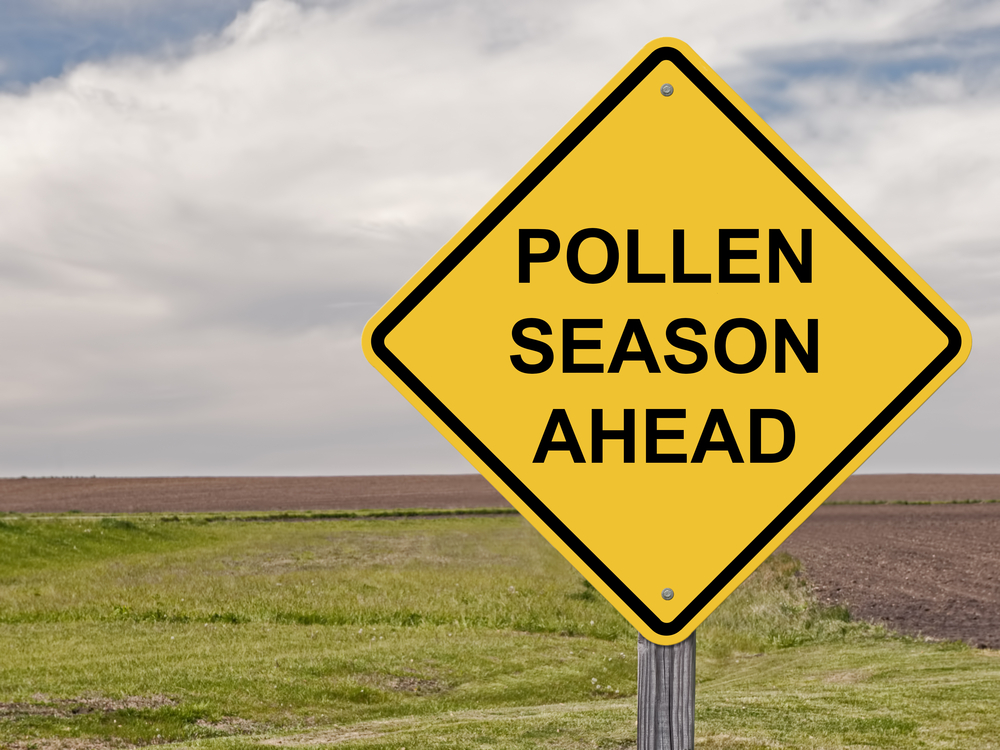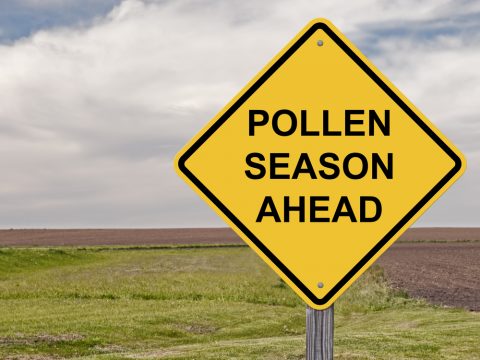Top tips to protect your eyes from hay fever


It’s here again! The time of year that around 13 million people in the UK dread – hay fever season.
Itchy eyes, frequently sneezing and a runny or blocked nose are common symptoms of this allergic reaction to pollen.
In fact, you can have an allergic reaction to around 30 types of pollen including:
- Tree pollen which is released during spring (generally late March to mid-May) – about 25% of the UK’s hay fever sufferers are allergic to this type of pollen
- Grass pollen which is released from the end of spring to the beginning of summer (mid-May to July) – a staggering 90% of people with hay fever in the UK have an allergy to Timothy and Rye grass pollen
- Weed pollen which is released up to late autumn (end of June to September) – an allergy to weeds, including nettles, mugwort and dock, is not as common and most often occurs during the autumn. Source: NHS
However, depending on the weather conditions each year, the pollen count can begin even as early as January and end in November.
Unfortunately, there is no known cure for hay fever but there are things sufferers can do to ease the symptoms.
Itchy, red and watery eyes are very common, and can be uncomfortable for people with hay fever. The symptoms can last for a few days or even a few weeks and make it difficult for sufferers to get on with their day to day activities.
One of the best ways to soothe red, itchy and watery eyes is by using simple lubricant eye drops – such as Hyabak or Thealoz Duo, which are available from your local optician or pharmacist. You can also use eye drops such as Opticrom, which work by preventing the release of inflammatory chemicals such as histamine from mast cells. This type of eye drop can provide fast and effective relief from itchy eyes.
Antihistamine tablets can also provide relief from all symptoms of hay fever including for your eyes although regular use of antihistamines may cause dry eyes in some.
When you go outside wear wraparound sunglasses to prevent pollen from getting into your eyes. There are some bang on trend styles on the market at the moment from designers including Oakley.
Hay fever can also be particularly irritating for sufferers who wear contact lenses. When they wear their lenses the itchiness and redness in their eyes can get even worse meaning they can’t wear their contact lenses for as long as they normally would.
If you wear contact lenses and suffer from hay fever then it is best to use daily disposables so that you get rid of any trapped pollen at the end of each day. You can also use lens comfort drops for temporary relief, such as Hyabak as mentioned earlier.
Try to avoid wearing contact lenses in hot, dry and dusty environments if you have hay fever but, if you have no choice wear wraparound sunglasses as well which will help protect your eyes and lenses from dust and pollen.
Other steps that hay fever sufferers can take to ease the symptoms of this troublesome condition include:
- Showering and changing your clothes when you go inside to remove pollen from your body
- If possible, staying indoors when the pollen count is high (over 50 grains per cubic metre of air). Check today’s pollen count from the Met Office
- Putting a small amount of Vaseline (petroleum gel) on to your nasal openings to trap pollen grains
- Keeping your windows and doors closed
- Not having fresh flowers in the house, even if they do look pretty!
- Getting the vac out! Vacuum regularly, ideally using a machine with a HEPA (high-efficiency particle arresting) filter
- Dusting with a wet cloth, rather than a dry one will not only collect the dust but stop any pollen being spread around
- Ditching the cigs! Smoking and breathing in other people’s smoke will irritate the lining of your nose, eyes, throat and airways making your hay fever symptoms worse
- Asking your partner or a loyal friend to mow the lawn for you
- Not walking in grassy areas, especially long grass
- Keeping your car windows closed. If possible buy a pollen filter for the air vents in your car, it will need to be changed every time your car is serviced
Our opticians can advise on the available hay fever treatments to soothe your red, watery and itchy eyes. Your pharmacist will also be able to advise on other available treatments such as antihistamines. If your symptoms are more severe you should see your GP as you may need prescription medication.


